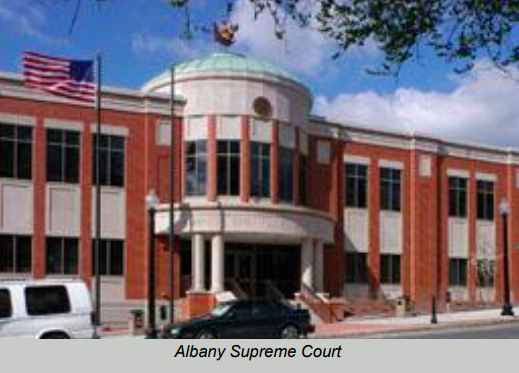
Guardianship laws have existed in the U.S for centuries, and in the world, for millenia. Here in New York, Surrogates Court Procedure Act
(SCPA) Art. 17-A was passed in the late 1960’s, as a result of deinstitutionalization of people with I/DD after the Willowbrook scandal, and the advocacy of parents seeking to protect their adult children. With the exception of some edits and changes in terminology (the use of the word “retarded” was removed as a result of Rosa’s Law in 2016), and despite decades of progress resulting from civil and disability rights movements and laws such as the IDEA and the ADA, recognizing the rights and humanity of people with disabilities, Art. 17-A has remained unchanged for more than 50 years.
Based on the revolution of due process protections recognized by the Supreme Court, (like right to notice, to a hearing, cross examination, counsel, etc.) in the second half of the 20th century, a national guardianship reform movement began in the late 1980’s. In 1992 New York’s Conservatorship and Committee laws were repealed and replaced by Mental Hygiene Law Article 81. In 1990, during the study and debate that led to its passage, the Legislature explicitly recognized the need for similar reform of Art. 17-A, not only because of its procedural inadequacies, but because of changes in the “care, treatment and understanding of (persons covered by Art. 17-A)”.
Those changes, of course, included the Americans with Disabilities Act (ADA), the services available to people with I/DD, and of critical importance, the understanding that disabilities exist across a continuum, that a gross diagnosis (Cerebral Palsy, Down Syndrome, Autism) was entirely inadequate to convey functional capacity or the ability of persons with I/DD to learn, grow, and live self-determined and inclusive lives. Although the Legislature called for a report and recommendations for amendments to 17-A, those never saw the light of day and more than three decades later, 17-A remains essentially unchanged, lacking virtually any procedural protections and relying entirely on the written, and often cursory diagnosis of a medical professional.
This inaction, in the face of near universal acknowledgment that 17-A is unconstitutional, led our partner, Disability Rights New York (DRNY) to file a federal law suit in 2016 that the Federal Appeals Court dismissed in 2019, determining that the question should be decided by state courts. Last week, DRNY filed a new case challenging 17-A’s constitutionality in the New York State Supreme Court in Albany County. The plaintiffs, identified by their initials, are people with I/DD, all placed under guardianship without recognized procedural protections, two of whom are college graduates, and all of whom have shown themselves capable of managing their own lives and making their own decisions if permitted to do so. The complaint is also based on the Equal Protection clause, asking why people with I/DD are treated so differently than persons with all other cognitive disabilities, and on provisions of the A.D.A and the federal Rehabilitation Act. (click here to read the 83 page complaint). The law suit is timely. As Tim Clune, the Executive Director of DRNY said about the filing,
“Article 17-a is an archaic law that strips away every civil right a person has. Decisions like who to love, where to live, who to vote for, where to go to school, where to get health care, and how to practice religion, are all taken away under a 17-a guardianship. There currently are ways to protect people without adherence to such a draconian system. New York State claims to care, I say prove it.”
THANKS TO DRNY AND THE PLAINTIFFS, FOR BRINGING THIS POTENTIALLY TRANSFORMATIONAL CASE ASSERTING THE RIGHTS OF INDIVIDUALS WITH I/DD!